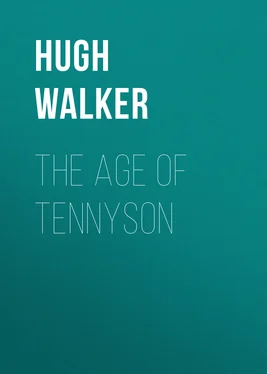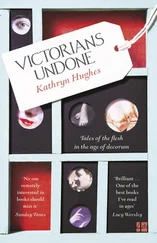Hugh Walker - The Age of Tennyson
Здесь есть возможность читать онлайн «Hugh Walker - The Age of Tennyson» — ознакомительный отрывок электронной книги совершенно бесплатно, а после прочтения отрывка купить полную версию. В некоторых случаях можно слушать аудио, скачать через торрент в формате fb2 и присутствует краткое содержание. Жанр: foreign_antique, Критика, literature_19, на английском языке. Описание произведения, (предисловие) а так же отзывы посетителей доступны на портале библиотеки ЛибКат.
- Название:The Age of Tennyson
- Автор:
- Жанр:
- Год:неизвестен
- ISBN:нет данных
- Рейтинг книги:5 / 5. Голосов: 1
-
Избранное:Добавить в избранное
- Отзывы:
-
Ваша оценка:
- 100
- 1
- 2
- 3
- 4
- 5
The Age of Tennyson: краткое содержание, описание и аннотация
Предлагаем к чтению аннотацию, описание, краткое содержание или предисловие (зависит от того, что написал сам автор книги «The Age of Tennyson»). Если вы не нашли необходимую информацию о книге — напишите в комментариях, мы постараемся отыскать её.
The Age of Tennyson — читать онлайн ознакомительный отрывок
Ниже представлен текст книги, разбитый по страницам. Система сохранения места последней прочитанной страницы, позволяет с удобством читать онлайн бесплатно книгу «The Age of Tennyson», без необходимости каждый раз заново искать на чём Вы остановились. Поставьте закладку, и сможете в любой момент перейти на страницу, на которой закончили чтение.
Интервал:
Закладка:
The criticism is just, and the aspiration is not only towards a desirable reform, but towards that which in point of fact has redeemed literature in the later decades of the century, and has given the Victorian age a position among the great poetic epochs of English literature. At the moment when Taylor wrote, the sinking so frequently noticeable between two great periods of literature was plainly to be seen, and it was far deeper in poetry than in prose. The great poets were somewhat later in coming than their brethren in prose, Macaulay and Carlyle; and, still more, it was longer before they proved to the satisfaction of criticism their title to be considered great. The field was for the time in possession of a band of minor poets, some of them not merely minor but insignificant. It is not enough to say that they are inferior to Byron, they belong to a different order altogether; for Byron, with all his faults, was great. It was however in his footsteps that they trod. As Keats and Shelley and Wordsworth have been the ruling powers since 1840, so during his brilliant life, and from his death down to about that year, was Byron. The poetry of the opening years of this period is therefore rightly affiliated to him. Even Tennyson, a man of wholly alien genius, felt the influence, as the Poems by Two Brothers shows; while the verse of Letitia Elizabeth Landon proves that sex was no barrier to it.
Want of subject-matter and of capacity for the intellectual and immortal part is precisely the defect of the poetry of those years. It is essentially trivial. It leaves the impression that the poet is writing not because he must, but because he has determined to do so. For the present purpose it is safer to draw conclusions from the work of a single great man than from that of many mediocre writers; and when we find Tennyson, already great in technical skill and graceful in style, sinking to triviality in subject and to commonplace sentiment, we look for an explanation not wholly confined to himself. We find it in the fact that those years were an interregnum between the philosophy of Rousseau and that gospel of work of which even Carlyle was as yet only half master, and which no one else had then grasped at all. Men were oppressed by a sense that the Revolution had shattered the old foundations of society; and they had scarcely gathered courage to attempt the task of reconstruction. To call therefore for a philosophy in poetry was right; but to supply it was impossible until the hour had come, and the man. Meanwhile the ordinary writer of verse groped in darkness or walked by a borrowed light. But in a sense, the man, or the men, had come, and the hour was rapidly approaching. Just three years before the beginning of the period Alfred Tennyson began to write, and just three years after it Robert Browning published his first poem.
Alfred, Lord Tennyson
(1809-1892).
Alfred, Lord Tennyson, was born at Somersby in Lincolnshire, of which place his father was rector. He was educated at Trinity College, Cambridge, where he was contemporary with and made the acquaintance of an unusual number of men afterwards highly distinguished. Tennyson’s most intimate friend was Arthur Henry Hallam (1811-1833), son of the historian, and himself a writer of high promise, both in verse and prose. The literary remains published after Hallam’s death can only be regarded as the promise of something that might have been. There is nothing great in them, but there is evidence of power which would probably have led the writer to greatness. Dying so young however, Hallam is memorable not so much for anything he did himself, as for his influence on his friend, and especially for the fact that he inspired In Memoriam .
During his course at Cambridge Tennyson won the Chancellor’s prize with the poem of Timbuctoo , a piece above the ordinary prize-poem level, but not in itself remarkable. Still earlier, in 1827, he had joined with his brother Charles in a small volume entitled Poems by Two Brothers . But these compositions were merely boyish, and Tennyson’s first noteworthy contribution to literature was the Poems, chiefly Lyrical , of 1830. This was followed by another volume bearing the date 1833, and entitled simply Poems . Then came nine years of almost complete silence, broken, in 1842, by two volumes entitled once more, Poems . These mark the end of Tennyson’s first period of authorship. In the volumes of 1830 and 1833 we may look upon him as in many respects an apprentice in poetry; in those of 1842 he has passed far beyond mere apprenticeship. The Princess (1847) indicates a change in his method and in the nature of his ambitions; while In Memoriam (1850), though it has its roots in the early life of Tennyson, and was in part at least written when the grief it commemorates was fresh, is connected by its subject-matter rather with Tennyson’s later work and with the interests of the second half of the century. In the year when In Memoriam was published Tennyson succeeded Wordsworth in the laureateship, an office which he held for a longer period than any of his predecessors. His appointment was the public recognition of him as the chief poet of his time.
The most interesting feature of Tennyson’s writings during those years is the evidence of development they present; and this is especially important in any attempt to gauge the tendencies of the time. This evidence has been much obscured by changes and omissions. Part of the contents of the volumes of 1830 and 1833 has been incorporated in the collected editions of Tennyson’s poems. About half of the collection of 1842 consisted of select poems from the earlier volumes; but many pieces were omitted, and of those retained almost all were freely changed, and some nearly re-written. For this reason it is difficult for the reader of the present day to appreciate fairly the early criticisms of Tennyson. It is well known that he was severely handled, especially by Lockhart in the Quarterly Review ; and it is supposed, on the ground of the poet’s great achievements, that this is only another example of perverse and utterly mistaken criticism. But such a judgment is hardly fair to the critic. Carlyle long afterwards condensed the criticism in his expressive way into a word,—‘lollipops.’ A great many of Tennyson’s early poems were ‘lollipops,’ dainty, exquisite, delicious to taste, but not food. They are elegant, not strong. They are deficient in two things essential to great poetry, depth of thought, and fervour of passion. The need of passion to poetry will be universally admitted; and to the need of thought, especially in the present century, one of the greatest of English critics has borne emphatic testimony. ‘I do not think,’ says Matthew Arnold in his Letters , ‘that any poet of our day can make much of his business unless he is intellectual.’
Now, among the early poems of Tennyson there are many pieces in which the want of these qualities is felt. He was certainly not in those days a poet of passion. His pulse temperately keeps time all the while he is drawing his Lilian, his Margaret and his Adeline. Though these pieces deserve, within certain limits, warm praise, they cannot be ranked as great poetry. They are masterpieces of grace, but they want depth. The writer is himself unmoved, and in consequence he leaves his readers equally calm. The same holds true of the thought in these volumes. It is usually cold and somewhat superficial. The critics, alive to these defects, were, it is true, both incautious and unfair. The early volumes contained a few poems showing no small force of mind, as well as a technical skill remarkable in so young a man. They contained, in particular, The Palace of Art and A Dream of Fair Women , both, even in their original shape, indubitably the productions of a strong intellect. In them also we find the exquisite Lotos-Eaters , with its wonderful melody, one of the most poetic poems Tennyson ever wrote, and one which, for suggestive beauty of thought as well as for rhythm, ranks among the masterpieces of the English language.
Читать дальшеИнтервал:
Закладка:
Похожие книги на «The Age of Tennyson»
Представляем Вашему вниманию похожие книги на «The Age of Tennyson» списком для выбора. Мы отобрали схожую по названию и смыслу литературу в надежде предоставить читателям больше вариантов отыскать новые, интересные, ещё непрочитанные произведения.
Обсуждение, отзывы о книге «The Age of Tennyson» и просто собственные мнения читателей. Оставьте ваши комментарии, напишите, что Вы думаете о произведении, его смысле или главных героях. Укажите что конкретно понравилось, а что нет, и почему Вы так считаете.












